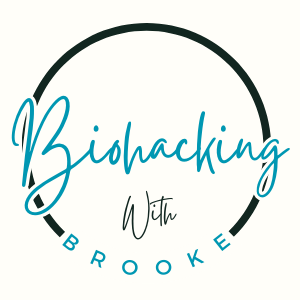Imagine a little process happening inside your body that could slow down aging and help you live longer. That’s autophagy. It’s like a clean-up crew for your cells, removing damaged parts and recycling them for energy. This natural process becomes essential as we age.
In this post, you’ll discover how autophagy contributes to longevity and what you can do to boost it. We’ll break down the science, share tips, and reveal the link between autophagy and a longer, healthier life. If you’re into biohacking, this is one fascinating topic you won’t want to miss! Ready to unlock the secrets of cellular rejuvenation? Let’s dive in!
What is Autophagy?
Autophagy is like a recycling program for your cells. It’s a natural process that cleans up and removes damaged or unnecessary components within the cell. Imagine your cluttered garage; autophagy steps in to clear out debris, making way for new and functional items. This process is vital for maintaining cellular health and resilience. As we age, the efficiency of autophagy can decline, making understanding its mechanisms crucial for those interested in health and longevity.
The Science Behind Autophagy
Autophagy, which means “self-eating” in Greek, is a biological process where cells break down and recycle their components. It serves as a quality control mechanism, ensuring that damaged proteins and organelles are removed. The process begins with the formation of a double-membrane structure called an autophagosome. This structure engulfs malfunctioning parts of the cell, effectively isolating them.
Once the autophagosome is formed, it fuses with a lysosome, a cellular powerhouse filled with digestive enzymes. This fusion creates an autolysosome, where the enclosed materials are broken down into simpler components. These components can then be reused to generate energy or build new cellular structures. For a detailed overview, check out Cleveland Clinic.
How Autophagy Works
The mechanisms of autophagy vary based on cellular needs and environmental conditions. Here are key points to understand how it functions:
- Triggering Factors: Autophagy is usually activated during stress, such as nutrient deprivation, oxidative stress, or infections. This makes autophagy an essential survival strategy.
- Types of Autophagy: There are several types, including macroautophagy (the most prevalent), microautophagy, and chaperone-mediated autophagy. Each type plays a slightly different role in cellular cleanup.
- Process Phases:
- Initiation: Specific signaling pathways, like mTOR (mechanistic target of rapamycin), are inhibited under stress, activating autophagy.
- Formation: The autophagosome is formed, capturing damaged cellular components.
- Degradation: Fusion with lysosomes breaks down materials, releasing vital nutrients and energy.
Understanding these processes reveals how autophagy not only maintains cellular health but also contributes to longevity. For more detailed information, you can read on Healthline.
Incorporating strategies to promote autophagy, like intermittent fasting or regular exercise, can help enhance this process and potentially extend your lifespan.
Autophagy and Aging
Autophagy plays a key role in cellular maintenance, especially as we age. It’s the body’s way of ensuring that old and damaged cellular parts don’t pile up, which can lead to wear and tear. Think of it as a helpful janitor, sweeping away debris and keeping things tidy inside your cells. As we explore the connection between autophagy and aging, you’ll see how this natural process can be a game-changer for longevity.
Cellular Cleanup
Autophagy is like a monthly deep clean for your cells. Under normal conditions, cells do fine maintaining themselves. But over time, or during times of stress, things can get messy. Dead proteins, damaged organelles, and other waste can accumulate, leading to cellular dysfunction. Here’s where autophagy steps in:
- Breaking Down Waste: The process targets damaged cells and proteins, breaking them down into reusable components. This prevents the clutter that can lead to aging-related diseases.
- Enhancing Cell Survival: When cells undergo stress, such as nutrient deprivation, autophagy initiates a cleanup. It helps cells adapt and survive challenging conditions.
- Quality Control: By removing faulty organelles, autophagy ensures that only the healthiest elements stay in the cell. This helps in maintaining overall cell health.
Research shows that as we age, our autophagic activity declines, which may contribute to the aging process. For an in-depth look at how autophagy influences health, check out this article on Autophagy in healthy aging and disease.
Impact on Longevity
So, how does this cellular clean-up relate to living longer? The connection between autophagy and lifespan is becoming clearer. Here’s what you should know:
- Cleaning Up to Live Longer: Studies suggest that higher levels of autophagy can lead to a longer life. When autophagy is working well, it clears out the bad stuff from our cells—helping prevent age-related diseases.
- Sirtuins and Lifespan: Autophagy activates sirtuins, which are proteins known to play a role in longevity. By boosting autophagic activity, these proteins can help delay aging.
- Evidence from Animal Studies: Research has shown that when autophagy is enhanced in animals, it can increase their lifespan. This indicates that the way our cells manage waste can directly correlate to how long we live. For more insights into this topic, read this study on Autophagy and Longevity.
- Boosting Autophagy: Simple lifestyle changes like intermittent fasting and regular exercise can ramp up autophagic processes. Making these adjustments might not just keep you fit but potentially add years to your life.
Understanding the role of autophagy in lifespan extension opens the door to exciting possibilities for healthier aging. Integrating strategies to enhance this natural process could be your ticket to living a longer, healthier life.
Factors Influencing Autophagy
Autophagy is not a one-size-fits-all process; it can be influenced by a variety of factors in your daily life. Some of the key elements that can enhance or inhibit autophagy include diet, exercise, and fasting. Let’s explore how each of these factors plays a role in promoting this crucial cellular process.
Diet and Nutrition
The foods you eat can significantly boost autophagy. Think of your meals as pit stops for autophagy—the right ingredients can rev up this cellular clean-up process. Here are some foods to consider integrating into your diet:
- Green Tea: Rich in antioxidants, it contains compounds that promote autophagy.
- Berries: These little gems are packed with vitamins and can support cellular health.
- Turmeric: Known for its anti-inflammatory properties, turmeric can stimulate autophagy.
- Garlic: It has sulfur compounds that may help in autophagy activation.
- Healthy Fats: Foods like olive oil and nuts are essential for fueling this process.
For more details on specific foods, check out Foods That Promote Autophagy.
Exercise and Physical Activity
Get moving! Exercise is like pressing the boost button on autophagy. Physical activity stimulates this process across various tissues, promoting cellular health. Here’s how exercise helps:
- Increased Autophagic Flux: Physical activity ramps up the turnover rate of cellular components.
- Hormonal Changes: Exercise alters levels of key hormones like growth hormone and insulin, which can enhance autophagy function.
- Prevention of Age-Related Diseases: Regular workouts help protect your body from diseases tied to aging.
Incorporating activities like resistance training can specifically boost autophagy in muscle tissues. For a deeper dive into the exercise-autophagy connection, explore this article on How Exercise Activates Cellular Renewal through Autophagy.
Fasting and Time-Restricted Eating
Fasting might sound daunting, but it’s a powerful trigger for autophagy. When you fast, your body goes into survival mode, giving autophagy a major boost. Here’s how fasting works:
- Inhibition of mTOR: During fasting, the mTOR pathway (a growth regulator) is inhibited, activating autophagy.
- Cellular Cleanup: Without a constant influx of nutrients, your body starts breaking down and recycling damaged components.
- Time-Restricted Eating: This involves limiting your eating window, which can also trigger autophagy without the need for prolonged fasting.
Research shows that fasting can lead to significant benefits for cellular health. Learn more about fasting’s effects on autophagy from this informative source on Autophagy Fasting.
Incorporating these factors into your lifestyle can help you optimize autophagy, paving the way for better longevity and health.
Practical Ways to Enhance Autophagy
Boosting autophagy is like giving your cells a refreshing spa day. Simple lifestyle changes can help kickstart this natural process, promoting better health and longevity. Here are some practical ways to enhance autophagy.
Incorporating Intermittent Fasting
Intermittent fasting is all about timing your meals. It’s like hitting the reset button for your cells. Instead of eating all day, you have specific eating windows. Here’s how it works:
- Basics: You cycle between periods of eating and fasting. Common methods include 16:8 (fast for 16 hours, eat during 8) or 5:2 (eat normally for 5 days, restrict calories for 2).
- Benefits: Research shows intermittent fasting can improve metabolism, reduce inflammation, and enhance autophagy. When you fast, your body runs low on energy, prompting it to clear out damaged cells and recycle essential components. Check out this source for more details on the benefits of intermittent fasting: Healthline on Intermittent Fasting.
Choosing the Right Foods
What you eat matters! Certain foods can help stimulate autophagy. Here’s a quick list of delicious options that can give this process a nudge:
- Green Tea: Packed with antioxidants, it’s a powerhouse for triggering autophagy.
- Berries: These sweet snacks are not just tasty—they’re also packed with vitamins.
- Turmeric: This golden spice is great for your health and can help rev up autophagy.
- Garlic: Full of sulfur compounds, garlic may enhance autophagy activation.
- Healthy Fats: Think olive oil and nuts. They are essential for fueling your body and cells.
Incorporating these foods into your meals can help support your body’s natural cleanup crew. For more details on foods that promote autophagy, check out this article on Foods That Promote Autophagy.
Regular Exercise Routines
Exercise is like a magic wand for autophagy. Regular physical activity revs up this cellular process big time. Here’s how you can get started with simple workouts:
- Get Moving: Activities like jogging, swimming, or cycling can significantly boost autophagy.
- Strength Training: Lifting weights or doing bodyweight exercises can increase autophagic activity in your muscles.
- High-Intensity Workouts: Short bursts of intense exercise can further enhance autophagic processes across various tissues.
Finding a routine that you enjoy is key. Even a brisk walk can help! For more insights on how exercise impacts autophagy, check out this article on Exercise and Autophagy.
Integrating intermittent fasting, choosing the right foods, and maintaining a regular exercise routine can all contribute to enhanced autophagy. By making these adjustments, you set the stage for better cell health and longevity.
Research and Future Directions
The intersection of autophagy and longevity is a vibrant field of research. Studies continue to unveil the intricate ways autophagy influences aging and how we might harness it for better health. Let’s explore some recent findings and potential future therapies targeting this fascinating process.
Recent Findings
Several key studies have illuminated the connection between autophagy and lifespan extension. Researchers have discovered that autophagy plays a significant role in maintaining cellular health. Here are some noteworthy insights:
- The Role of Autophagy in Longevity: Research suggests that enhancing autophagic activity can promote longevity. For instance, studies using various model organisms, like yeast and mice, show that increased autophagy correlates with a delay in aging. For an in-depth look, check out Autophagy as a promoter of longevity.
- Hyper-responders and Longevity: Findings point to individuals with heightened autophagic responses as having a better health span. These insights hint that our evolutionary past might hold answers for modern longevity. More details can be found in the study Autophagy and longevity: Evolutionary hints from hyper-responders.
- Autophagy in Healthy Aging: Research shows that as we age, autophagy declines, leading to cellular buildup. Studies have indicated that enhancing autophagy could improve health outcomes in older adults. To dig deeper, read about Autophagy in healthy aging and disease.
These findings underscore the importance of autophagy in maintaining cellular integrity as we age.
Potential Therapies
With the growing knowledge base, potential therapies that target autophagy are emerging. Here’s what you need to know about promising approaches:
- Natural Products: Some researchers advocate for the use of natural compounds to enhance autophagy. These compounds may serve as therapeutic options for age-related diseases. You can read about this in the article Targeting Autophagy with Natural Products as a Potential Therapeutic Strategy.
- Pharmacological Approaches: Targeting autophagy through specific drugs is another exciting avenue. Some cancer therapies have discovered ways to stimulate autophagy, mimicking conditions like starvation to promote cellular cleanup. For a comprehensive overview, check out Principles and Current Strategies for Targeting Autophagy.
- Challenging Autophagy in Cancer: The role of autophagy in cancer treatment remains complex but intriguing. Understanding this dual role can open doors to using autophagy as a target for innovative therapies. Learn more from this article Is targeting autophagy mechanism in cancer a good approach?.
As research continues, breakthroughs in therapies that promote autophagy could play a crucial role in enhancing longevity and treating various diseases effectively.
Conclusion
Autophagy is a powerhouse process working hard for cellular health and longevity. By clearing out damaged cells, it gives your body a better chance to thrive as you age.
Embracing lifestyle choices like intermittent fasting, nutritious eating, and regular exercise can help boost autophagy.
Why not take control of your health today? Consider small changes that promote this cellular cleanup. Your future self could thank you for it!
Brooke is a rock-climbing 🧗♀️, tennis-playing 🎾, biohacking 🧬 bookworm 📚 on a mission to unlock the secrets of health, longevity, and living life to the fullest 🌟. When she’s not scaling cliffs, hitting the courts, or testing out the latest hacks, you’ll find her nose in a book or adventuring with her four-legged best friend 🐕 by her side. With a knack for turning science into simple, actionable tips, Brooke’s writing is your guide to hacking your biology and living your best, most vibrant life!


